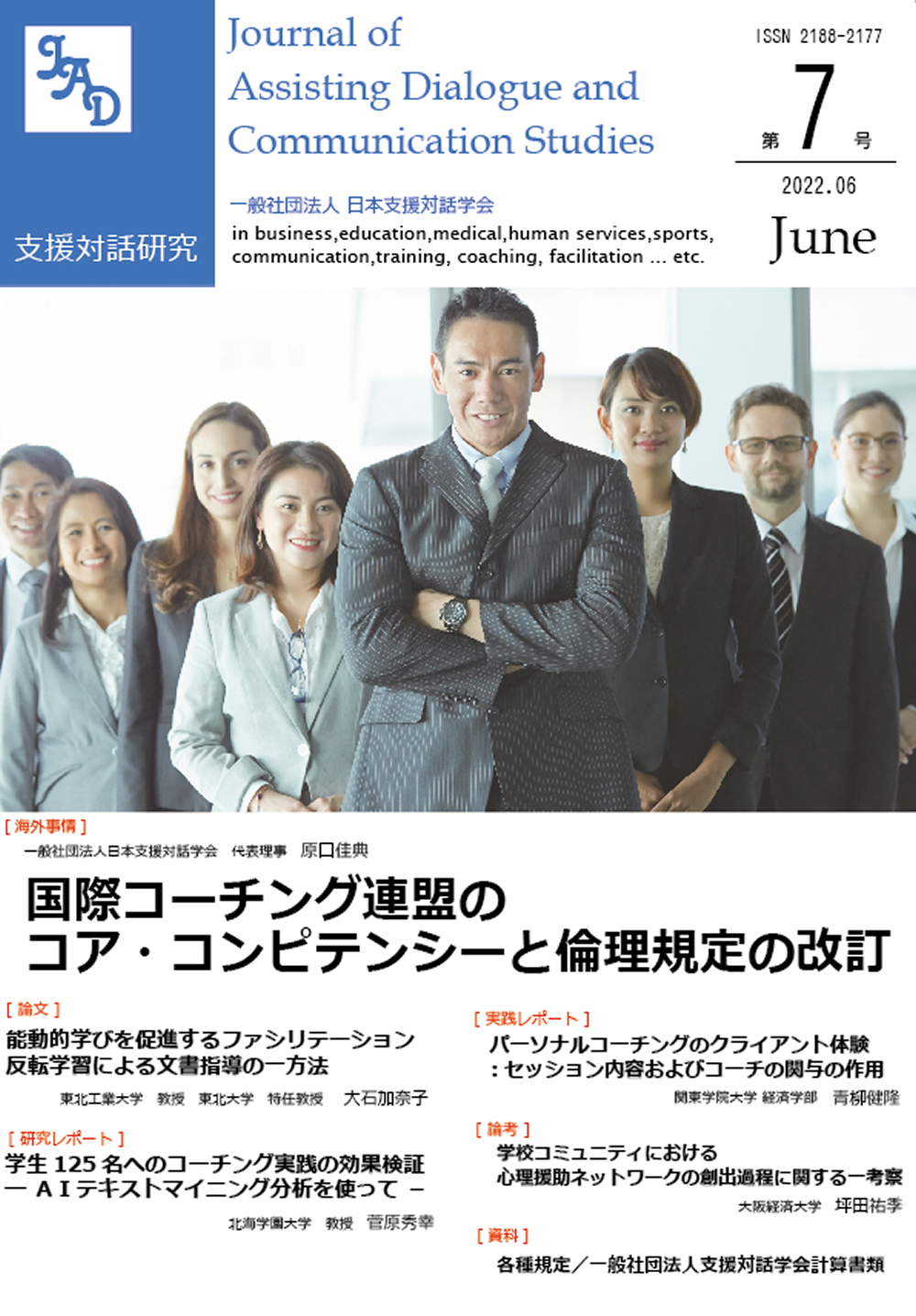Volume 7
Displaying 1-5 of 5 articles from this issue
- |<
- <
- 1
- >
- >|
-
2022 Volume 7 Pages 3-17
Published: July 31, 2022
Released on J-STAGE: October 10, 2022
Download PDF (575K) -
2022 Volume 7 Pages 18-37
Published: 2022
Released on J-STAGE: October 10, 2022
Download PDF (675K) -
2022 Volume 7 Pages 38-52
Published: 2022
Released on J-STAGE: October 10, 2022
Download PDF (703K) -
2022 Volume 7 Pages 53-64
Published: 2022
Released on J-STAGE: October 10, 2022
Download PDF (541K) -
2022 Volume 7 Pages 65-73
Published: 2022
Released on J-STAGE: October 10, 2022
Download PDF (360K)
- |<
- <
- 1
- >
- >|
